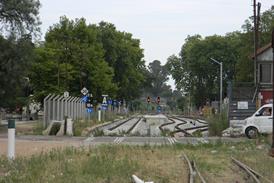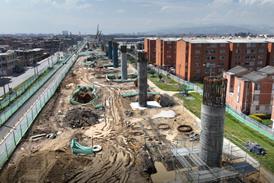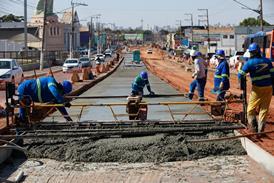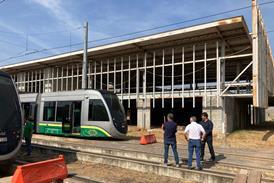ANNOUNCEMENT by Compagnie Générale d’Entreprises Automobiles on July 4 that it had acquired a 70% stake in the independent Dutch operator Lovers Rail confirms beyond all doubt that the French company is seeking to become a major player in providing contracted rail passenger services across Europe.
From humble beginnings running branch line services in Brittany and the trams in Rouen, plus some contracted freight services on the French national network, CGEA’s rail activity has grown rapidly with the acquisition of two large commuter franchises in Britain (Connex South Eastern and Connex South Central). Owned by a large utilities group, CGEA also has a majority interest in Deutsche Eisenbahn Gesellschaft in Germany and is busy looking for opportunities elsewhere - among the more unlikely targets is Gabon State Railways, which is due to be concessioned by the end of this year.
The CGEA-Lovers tie-up gives the Dutch company the financial clout to invest in more rolling stock so that it can compete more effectively against Netherlands Railways under the embryonic Dutch open access regime. It has recently secured permission from the Department of Transport to operate on the Leiden - Den Haag CS (17 km), Utrecht - Hilversum (17 km) and Amsterdam - Haarlem (14 km) routes. It proposes to run half-hourly services on all three routes from June next year and it also plans to continue the Amsterdam - IJmuiden service it has run this year.
Lovers also had permission this year to run tourist specials from Amsterdam to Lisse for the Keukenhof bulb fields using historic rolling stock - but this attempt failed as no suitable trains were available.
Last year Lovers had sought permission to run a Randstad Express service from Utrecht to Hilversum, Amsterdam, Schiphol Airport, Leiden, Den Haag and Rotterdam, but the request was turned down because Railned said there was no spare capacity on some sections of the route.
To attract passengers to its services Lovers says it will provide audio-visual travel information on board, advanced seat reservations, carriage of bicycles for ’hardly any extra charge’, plus cheaper tickets for standees. The seat reservations and standee arrangements seem strange, as no trip on the three routes takes longer than 20min. Tickets and reservations will only be available from stations along the Lovers routes, and NS has no plans for through ticketing.
Whether these offerings will suffice to woo passengers off NS services will only be known in the course of time. At the moment NS runs a 10min interval service offering 2500 seats /h in each direction between Amsterdam and Haarlem; on the Hilversum route it has a 15min service with 800 seats/h each way; between Den Haag and Leiden there are 12 trains and 3300 seats/h each way.
Lovers’ routes are short and isolated, which will not help in making efficient use of rolling stock - it is currently hunting for a fleet of 1·5 kV trains able to run at 140 km/h. It may in the future try and bridge the gaps in its licensed routes and so work towards its objective of a Randstad Express route.
It seems that Transport Minister Annemarie Jorritsma-Lebink is desperate to have some competition to prove that third parties can do as well as NS or better. Yet a majority of Dutch MPs opposes the introduction of competition on the core network, mainly because NS makes up losses incurred by running local trains with the profits from its main lines, and the fear is that NS will reduce or withdraw local services if its profitable traffic is creamed off by competitors.
Last month CGEA told the Dutch media that it ’did not think this little mouse will grow into a big tiger, but we will certainly try to offer competitive service at a better price.’ o




















